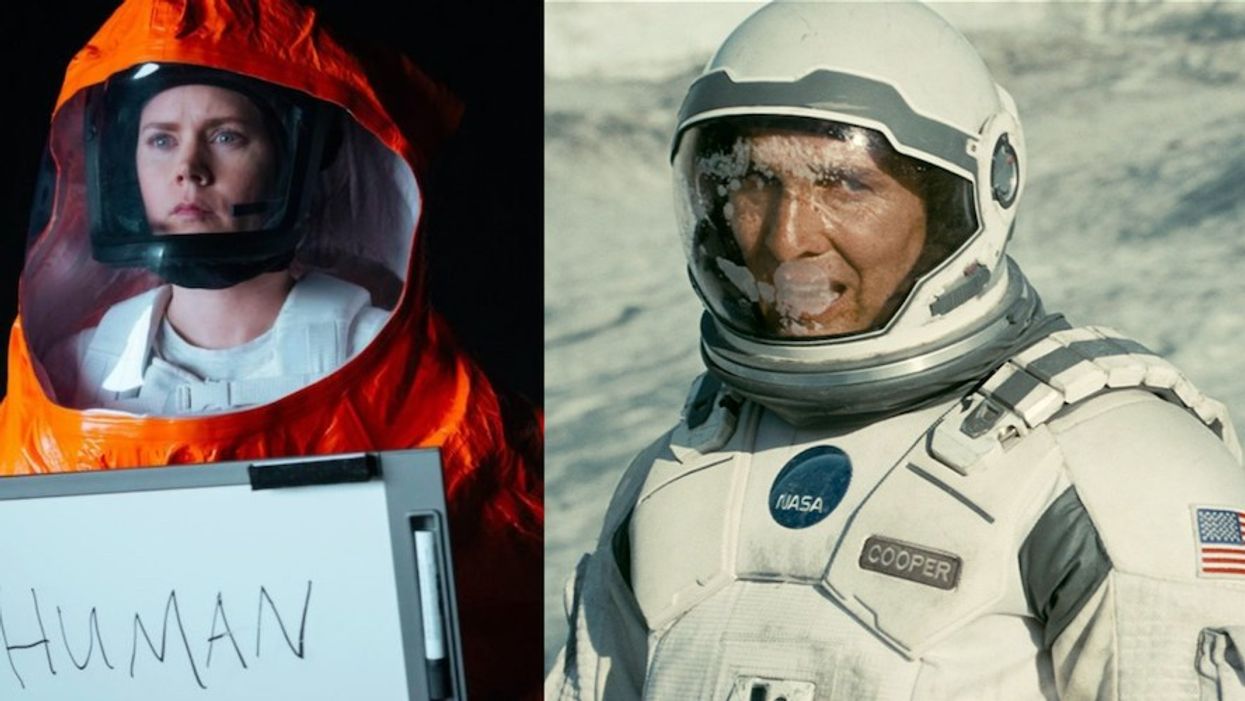How to Fix One of Science Fiction's Most Pesky Problems, Relatability
Science fiction can often be alienating and hard to market to mass audiences. So how can you make it more relatable?

When it comes to writing and directing genre, science fiction usually presents the most problems for people. The reason being, it takes us so far into the unknown that it can be hard for people to relate to the events in the story or the otherworldly visuals.
Oftentimes, these films and TV shows will be described as "cold."
When you get your chance to shoot your shot, you want your work in science fiction to be memorable.
That's why I think you should spend most of your time making sure that makes it relatable as well.
Today I want to go over two recent science fiction films and show how each of them took typically cold subject matter and made it relatable to audiences, leading to box office booms and great reviews.
So without further ado, check out this video from Richard DeZerga and let's talk after the jump.
How to Make Your Science Fiction Relatable
One of the core tenets of science fiction is how the plot and themes reflect on humanity. So, when you attempt to write science fiction the first question you should ask is...
"How does this affect the humans involved?"
The answer for both Arrival and Interstellar is given through the lens of family.
While the video is determined to argue one is a better film than the other, I think our time is better spent talking about why both are good and what you can use in your own writing.
First, you can't just add family to make things worthwhile. You have to find actual resonance. Interstellar asks a question of sacrifice. What would a father do to ensure that other fathers would be able to spend time with their kids? That sacrifice becomes generational, as he sees his daughter make similar sacrifices to ensure humanity survives.
Since this becomes the core of the story, science fiction helps aid this goal.
In fact, a good strategy when tackling science fiction is to retroactively work out the science, and start from the characters and emotions.
Arrival does this well too.
Sure, we have this insane situation with aliens landing, but at its core is a story about language. How communication across cultures and species bond us. Even deeper down, it's about the idea that family and love are worth everything, even tragedy.
As the old saying goes, "It's better to have loved and lost, than to have never loved at all."
So, How Does This Affect Your Writing?
Adding family can give you a leg up...but it's not a panacea.
What matters the most is that science fiction is used to service a bigger theme. So, how does your theme reflect on the people in the movie? How does it inform the rest of the story?
In Arrival and Interstellar, the scenes in their respective stories all have science fiction in them, but the root of each is about their themes.
That means when you sit to write, think about how science fiction informs each scene, how it builds on the characters, and how you can use advances in tech for your benefit—but never take away from the humans at its center.
Does your script do that?
If not, go back to page one and start rewriting.
What's next? 4 Lessons from Eric Heisserer on Writing Science Fiction!
The writing of Arrival was an especially fun (but hard) task for Eric Heisserer. Learn how he adapted a story into an incredible screenplay!
Keep reading!
Source: Richard DeZerga










![Ethos, Pathos, Logos: 20 Effective Ways to Advertise [Infographic]](https://nofilmschool.com/media-library/ethos-pathos-logos-20-effective-ways-to-advertise-infographic.jpg?id=34064614&width=600&height=600&quality=90&coordinates=560%2C0%2C0%2C0)

